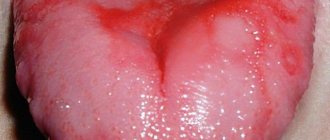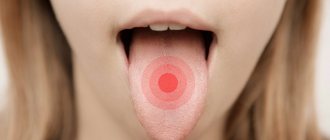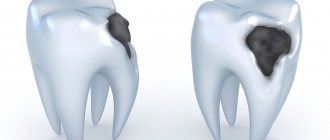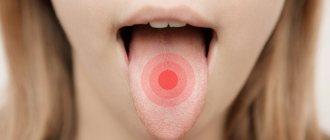29.01.2020 25314 0
- When to introduce the first complementary foods
- How to tell if your baby is ready for solid food
- Diet for young children
- Common mistakes in complementary feeding
- Prohibited products
- What to do if your child cannot eat solids
- Gameplay for eating
When a small child appears in a family, parents are faced with a difficult task: not only to raise and educate, but also to instill in the child all the necessary skills. For example, young parents are often concerned about how to teach their child to chew. We have collected advice for you from famous Russian and foreign pediatricians that will help you find the optimal solution.
What are the difficulties?
For adults, the process of chewing food seems completely natural. But the child only has a sucking reflex, and even liquid puree becomes unusual and unfamiliar food for him. In addition, the same period is characterized by other reflex reactions, due to which solid pieces of food that enter the mouth are rejected. They weaken by 4 months, but there is no need to wean the baby from the breast at this age: mother’s milk “adjusts” to the baby’s needs, its composition changes over time.
Associated symptoms
Many symptoms of various diseases can accompany tongue chewing. As mentioned above, these are endocrine disorders, infectious diseases, often teething or pathologies of the bite and development of the jaw bones.
In addition to all of the above, this habit can be accompanied by many inflammatory diseases of the oral cavity:
- glossitis - inflammation of the tongue,
- stomatitis - inflammation of the mucous membrane,
- gingivitis – inflammation of the gums.
These pathologies always cause discomfort in babies in the form of itching and pain, so they begin to drown it out by chewing their tongue. A vicious circle is created here - the child bites the tongue, thereby injuring it, which further aggravates the inflammatory process. That is why chewing the tongue itself contributes to the development of diseases.
How to tell if your baby is ready for solid food
As a rule, the baby himself makes it clear that he is interested in updating his diet. This can be seen from his behavior:
- Stops sucking food from a spoon, removing it with his lips
- Tries to chew
- Shows interest in “adult” food
- Puts hard objects into mouth
- Opens mouth wide when feeding
Usually this happens no earlier than 6-8 months - this is when you can start giving your child cereals and other foods with small dense particles.
Dangerous causes of tongue protrusion in children
If the baby's tongue sticks out constantly, parents should consult with their local doctor. A particularly alarming symptom is the tongue falling out of the mouth during sleep.
If during the waking period the baby often opens his mouth, his tongue is not held in the oral cavity, and incessant drooling is observed, then there is a possibility of developing an infectious disease. In addition, similar manifestations occur in infants with pathologies of the endocrine system or suffering from neurological diseases.
Hypothyroidism in a child
A decrease in the functions of the thyroid gland can cause a disease such as hypothyroidism. Most often it occurs due to a lack of iodine in the mother’s body during pregnancy. The consequences for the child can be very serious: with hypothyroidism, there is a lag in intellectual and physical development.
To diagnose the pathology, blood is taken from the heel of newborns in the maternity hospital. If a disease is detected, the mother is invited to consult a specialist. If hypothyroidism was not detected immediately after birth, then it can be determined at 2-3 months of life by the following signs:
- the skin has a marbled tint;
- the child sticks out his tongue, his mouth is open regardless of the need for food;
- the baby lags behind his peers in development;
- the baby's skin is unnaturally dry;
- the child’s tongue swells and does not fit in the oral cavity;
- the nasolabial area has a bluish tint;
- the newborn is not gaining weight well;
- constipation occurs.
Before starting treatment, the baby is carefully examined. They take tests for thyroid hormones and perform an ultrasound of this organ. Next, hormonal therapy is prescribed.
High blood pressure
Another reason that a child’s tongue falls out of the mouth is a neurological pathology resulting from a birth injury.
Most often, neurologists diagnose high intracranial pressure in infants. At the same time, children experience tearfulness, sleep disturbances, and poor appetite.
A characteristic sign of the disease is a thrown back head, an open mouth and a protruding tongue. Also, a child with high intracranial pressure has the following symptoms:
- increase in head size;
- a bulge in the area of the fontanel, which heals very slowly;
- strabismus;
- increased muscle tone;
- tremor of the chin and upper limbs.
The therapy is carried out by a neurologist. If the diagnosis is confirmed, the doctor will prescribe the necessary medications. With appropriate timely treatment, the disease is completely cured.
Facial muscle atrophy
Facial muscle atrophy may also present with uvula protrusion during infancy. The disease occurs due to impaired functionality of the trigeminal nerve. It can be provoked by endocrine pathologies and malfunctions of the autonomic nervous system. In some cases, facial muscle atrophy is a complication of colds or injuries. The main symptoms of the disease include:
- lack of smile;
- inability to use facial expressions;
- swelling of the lips;
- disappearance of folds on the forehead;
- recessed eyelids;
- asymmetry of facial structures;
- deviation of the chin from the center line.
A baby who exhibits such signs must be urgently shown to a therapist or neurologist. Complex therapy is used for treatment, which includes physiotherapy, massage and drug treatment. An example of facial muscle atrophy is shown in the photo.
Some oral diseases
Babies often open their mouths and show their uvula if they have inflammation in the mouth. Among the most common diseases in childhood, pediatricians identify candidiasis and stomatitis.
When there is a fungal infection of the mucous membrane (candidiasis) of the oral cavity, children stick out their tongues, trying to get rid of the discomfort. A one-month-old baby becomes infected with the disease from its mother during feeding or during childbirth. After birth, candidiasis occurs in two- and three-month-old infants with frequent regurgitation. Dr. Evgeniy Komarovsky is sure: to avoid infection with thrush, the mother must monitor the baby’s hygiene.
Stomatitis can be caused by fungal microorganisms, viruses and bacteria. This pathology is characterized by the formation of small ulcers in the oral cavity, the temperature may rise, and appetite may worsen. Local drugs are used for treatment.
Common mistakes
Young parents may involuntarily make mistakes. This is normal and should not cause panic: the first child is always difficult. If your baby refuses solid food, there are several reasons.
Particle size too large
. A child’s protective reflex is triggered, causing him to often spit out food. And if the piece is very large, the baby may start vomiting.
Complementary foods were introduced very late
. Some “specialists” and “experienced relatives” convince young mothers that they need to feed their baby breast milk for up to a year, without giving him other food. The baby gets used to this diet, and his chewing reflex does not develop. There is no need to be afraid, it is difficult, but it can be fixed.
The child does not like the taste
. Yes, he is already an independent person who has formed his own preferences. So the baby can easily eat broccoli and refuse the baked pear. Or vice versa. You should not force your child to eat something he doesn’t like or force him to finish the entire portion.
Negative associations
. Some psychologists believe that refusal to eat from a spoon may be caused by the fact that the child associates food with medicine (manifests itself in cases where the baby was given tasteless medicines).
Too many new products
. Don't try to include a lot of different foods in your diet. As Ellyn Satter writes in Feeding and Nourishing Your Baby with Love and Common Sense, it's best to add "scary and unfamiliar" foods to what your baby already loves, and in very small portions.
The child is fed like an adult
. Larisa Surkova writes in the book “How great it is with a child from 1 to 3 years old: a generator of useful tips”, you should not deny your baby tactile sensations. If he wants to crush food, sniff it, smear it on the table, let him do it. In the end, the table can be covered with oilcloth (and the floor, by the way, too).
Underwater rocks
Up to six months, children have an active expulsion reflex - a natural defense against suffocation. Therefore, at the beginning of “communication” with semi-solid food, the child may choke and spit out the food. There is no need to be scared and abruptly return to purees and ground products! Chewing is a skill and needs to be learned.
If you've introduced semi-solid foods a long time ago and your baby is still choking, give him time. Place food in front of your baby and watch - let him try to put food in his mouth with his hand on his own. Children should be praised and not scolded at the table! Otherwise, food may begin to be associated with violence and lead to an eating disorder.
Links:
- The American Journal of Clinical Nutrition, Volume 94, Issue 3, September 2011, Pages 709–716, https://doi.org/10.3945/ajcn.111.015164
- The American Journal of Clinical Nutrition. Mastication of almonds: effects of lipid bioaccessibility, appetite, andhormone response. Bridget A Cassady. https://ucce.ucdavis.edu/files/datastore/608-11.pdf
- Cell. Nicolas Dutzan. Published: January 10, 2022 DOI: https://doi.org/10.1016/j.immuni.2016.12.010
- Effectiveness of Chewing Technique on the Phonation of Female Speech-Language Pathology Students: A Pilot Study. Meerschman I DOI:10.1016/j.jvoice.2015.06.016
What to do if your child cannot eat solids
In some cases, even a one-year-old baby cannot chew food and constantly choke on small pieces. This means that the chewing reflex has not fully formed, and parents will have to act very delicately:
- Prepare thick cream soups and purees for your child, but leave a few tiny boiled pieces of vegetables when blending
- Later, the vegetables can be chopped with a fork; the pieces will become larger, but not hard enough for a child to choke on.
- The best effect will be achieved by products whose taste the child likes. These can be baked apples and pears, bananas, children's cookies
- Food needs to be made not only tasty, but also beautiful so that it attracts the baby
If, during the learning process, the child continues to choke and is unable to swallow solid food, this is a reason to consult a doctor who will find the cause of the problem.
Game process
The child needs to be interested. A game story for eating is the absolute norm. During the process, you can tell your baby an interesting story in which he will be involved. The well-known “airplane” flying to the “hangar” is a real way to feed a child without nerves and hysterics. However, it is important to understand that if the baby begins to turn away, it means that he has already eaten. There is no need to feed him with the rest of the puree, even if it is only a spoon. Teaching a baby to eat “adult” solid food is a really difficult task that requires attention and patience from parents. Remember that you are helping your child develop one of the most important skills! On this path you need to become an ally to the baby. Force feeding will cause rejection. It is simply impossible to teach by feeding tasteless purees or forcing the child to finish eating porridge when the child is already full.
(2 ratings; article rating 5.0)
Share Share Share










